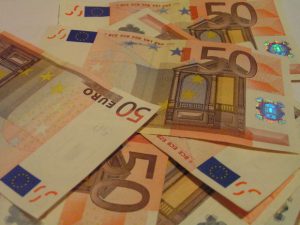Foreign Income Verification Statement
Question on T1 General Tax Return, T2 Corporate Return and T3 Trust Returns
When you complete your Personal Income tax return for Canada there is a question on the front of the return which asks “Did you own or hold foreign property at any time in 2012 with a total cost of more than $100,000” if the answer to this question is YES you must complete and file a T1135 Foreign Income Verification Statement which indicates the types of property held and cost of each types of property held. This question has been asked every year on the tax return for the foreign property and the first form was required to be filed in 1999.
A new Foreign Income Verification Statement – Form T1135 was announced on June 25, 2013
which provides additional information to Canada Revenue Agency. The increased reporting requirements include the following:
- the name of the specific foreign institution or entity holding funds outside Canada;
- the specific country to which the foreign property relates and
- the income generated from the foreign property.
The new T1135 form will start with 2013 taxation years and is part of the Economic Action Plan 2013 to crack down on international tax evasion and aggressive tax avoidance.
What is Foreign Property?
Property is broken down into 6 different property types, The typical foreign property that most tax payers will have is funds held outside of Canada, money owed to them by a non-resident, Shares of non-resident corporations and real property outside of Canada. If the combined cost of the various properties you held valued in Canadian Dollars is greater than $100,000 then you must complete and file Form T1135 Foreign Income Verification Statement
Real Property outside of Canada
Canada Revenue Agency is not looking for you to declare the family vacation property you have in Florida, Arizona or Greece if these properties are for personal use they should not be part of the foreign income verification form.
However, if you rent out your foreign property and the total original cost of all your foreign property, either what you paid for it, or the value when it was given to you by way of a gift or inheritance is greater than $100,000 Canadian dollars, you must declare it on the form.
Of course any income from foreign property must also be included on your personal tax return because as a resident of Canada you have to report your worldwide income from all sources both inside and outside of Canada.
Penalty for Failing to File
The problem becomes when a taxpayer fails either deliberately or unintentionally to declare this property. The penalty is substantial for failing to complete and file the Form T1135 Form on or before the due date of your personal income tax return. The penalty for failing to file this form is $25 per day, to a maximum of $2,500. However, If you knowingly, or under circumstances amounting to gross negligence, fail to file the form, the penalty jumps significantly to $500 for each month the form is not filed, to a maximum of 24 months which amounts to $12,000 penalty per tax year. Consequently, ignoring the filing requirement can be very costly.
Who must file?
Generally, any resident of Canada with specified foreign properties with a cumulative cost in excess of $100,000 must file a T1135. This would include individuals, corporations, trusts and partnerships.
If you own foreign investments with other individuals or entities must compute their pro-rata share of the cost of the investment and apply it to the total. The rules state that foreign investments “held at any time during the year” qualify. Thus, taxpayers who buy and sell a foreign investment in excess of $100,000 in the same year must report it even if they no longer hold the investment at year end.
Want to See more?
Also be sure to watch this Educational Video T1135 Form – The New Foreign Income Verification Statement and what you need to know.
If you need to file a T1135 Form or would like to do a voluntary disclosure on unfiled forms I would be pleased to be of service to you. Please contact me either by phone (416) 398-1700 or by the contact form on the top right hand of this page.







